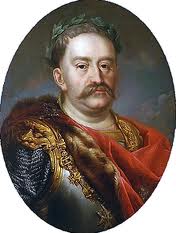Annotation:King of Poland (The): Difference between revisions
No edit summary |
No edit summary |
||
| Line 2: | Line 2: | ||
---- | ---- | ||
<p><font face="garamond, serif" size="4"> | <p><font face="garamond, serif" size="4"> | ||
'''KING OF POLAND, THE'''. AKA and see "[[Courtiers Courtiers]]." English, Country Dance Tune (6/8 time). E Minor (Raven): G Dorian (Barnes, Chappell, Sharp). Standard tuning (fiddle). AAB (Chappell, Raven): ABB (Sharp): AABB (Barnes). The air appears as "The King of Poland" in John Playford's '''Apollo's Banquet''', 5th Edition (1687, p. 98) | '''KING OF POLAND, THE'''. AKA and see "[[Courtiers Courtiers]]." English, Country Dance Tune (6/8 time). E Minor (Raven): G Dorian (Barnes, Chappell, Sharp). Standard tuning (fiddle). AAB (Chappell, Raven): ABB (Sharp): AABB (Barnes). The air appears as "The King of Poland" in John Playford's '''Apollo's Banquet''', 5th Edition (1687, p. 98) and his '''Dancing Master''', 7th Edition (1687), although Chappell (1859) finds no lyrics to a song about a King of Poland in the ballad literature. The title undoubtedly refers to John III Sobieski [http://en.wikipedia.org/wiki/John_III_Sobieski] (reign 1674-1696), an international hero after his victory over the Ottoman Turks at the Battle of Vienna in 1683, the high tide of Muslim expansion in Europe. He was hailed as the 'Saviour of Europe'. | ||
[[File:sobieski.jpg|200px|thumb|left|John III Sobieski]] | [[File:sobieski.jpg|200px|thumb|left|John III Sobieski]] | ||
<br> | <br> | ||
<br> | <br> | ||
The melody | The melody is the air to an a song, perhaps older, that was called "[[Courtiers Courtiers]]" on broadside sheets beginning in the last two decades of the 17th century. The same song, headed by the title "[[Beggar's Delight (The)]]," was entered into the Pepys collection, as it was sung at the Theatre Royal. | ||
<blockquote> | <blockquote> | ||
''Courtiers, courtiers, think not in scorn,''<br> | ''Courtiers, courtiers, think not in scorn,''<br> | ||
| Line 16: | Line 16: | ||
''He that hath thousands pounds a year.''<br> | ''He that hath thousands pounds a year.''<br> | ||
</blockquote> | </blockquote> | ||
It was a familiar melody to 18th century audiences, and was employed for songs in the ballad operas "The Beggar's Opera" (1729), "The Judgement of Paris" (1731) and "The Bow Street Opera" (1773). | |||
</font></p> | </font></p> | ||
<p><font face="garamond, serif" size="4"> | <p><font face="garamond, serif" size="4"> | ||
| Line 23: | Line 24: | ||
</font></p> | </font></p> | ||
<p><font face="garamond, serif" size="4"> | <p><font face="garamond, serif" size="4"> | ||
''Printed sources'': Barlow ('''Complete Country Dance Tunes from Playford's Dancing Master'''), 1985; No. 275, p. 69. Barnes ('''English Country Dance Tunes'''), 1986. Chappell ('''Popular Music of the Olden Times''') | ''Printed sources'': Barlow ('''Complete Country Dance Tunes from Playford's Dancing Master'''), 1985; No. 275, p. 69. Barnes ('''English Country Dance Tunes'''), 1986. Chappell ('''Popular Music of the Olden Times, vol. 2'''), 1859; pp. 60-61. Christian ('''The Playford Assembly'''), 2015; p. 56. Raven ('''English Country Dance Tunes'''), 1984; p. 12. Sharp ('''Country Dance Tunes'''), 1909; p. 57. Walsh ('''Complete Country Dancing-Master, Volume the Fourth'''), London, 1740; No. 184. | ||
<br> | <br> | ||
<br> | <br> | ||
Revision as of 21:28, 26 June 2017
Back to King of Poland (The)
KING OF POLAND, THE. AKA and see "Courtiers Courtiers." English, Country Dance Tune (6/8 time). E Minor (Raven): G Dorian (Barnes, Chappell, Sharp). Standard tuning (fiddle). AAB (Chappell, Raven): ABB (Sharp): AABB (Barnes). The air appears as "The King of Poland" in John Playford's Apollo's Banquet, 5th Edition (1687, p. 98) and his Dancing Master, 7th Edition (1687), although Chappell (1859) finds no lyrics to a song about a King of Poland in the ballad literature. The title undoubtedly refers to John III Sobieski [1] (reign 1674-1696), an international hero after his victory over the Ottoman Turks at the Battle of Vienna in 1683, the high tide of Muslim expansion in Europe. He was hailed as the 'Saviour of Europe'.

The melody is the air to an a song, perhaps older, that was called "Courtiers Courtiers" on broadside sheets beginning in the last two decades of the 17th century. The same song, headed by the title "Beggar's Delight (The)," was entered into the Pepys collection, as it was sung at the Theatre Royal.
Courtiers, courtiers, think not in scorn,
If poor silly swains in love should be,
Love lies hid in rags all torn,
As well as in silks and bravery.
And the beggar doth love his lass as dear
As he that hath thousands, thousands, thousands,
He that hath thousands pounds a year.
It was a familiar melody to 18th century audiences, and was employed for songs in the ballad operas "The Beggar's Opera" (1729), "The Judgement of Paris" (1731) and "The Bow Street Opera" (1773).
Source for notated version:
Printed sources: Barlow (Complete Country Dance Tunes from Playford's Dancing Master), 1985; No. 275, p. 69. Barnes (English Country Dance Tunes), 1986. Chappell (Popular Music of the Olden Times, vol. 2), 1859; pp. 60-61. Christian (The Playford Assembly), 2015; p. 56. Raven (English Country Dance Tunes), 1984; p. 12. Sharp (Country Dance Tunes), 1909; p. 57. Walsh (Complete Country Dancing-Master, Volume the Fourth), London, 1740; No. 184.
Recorded sources:
